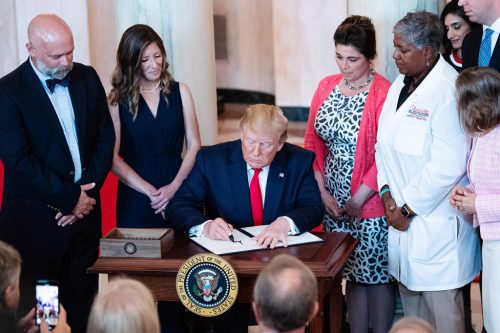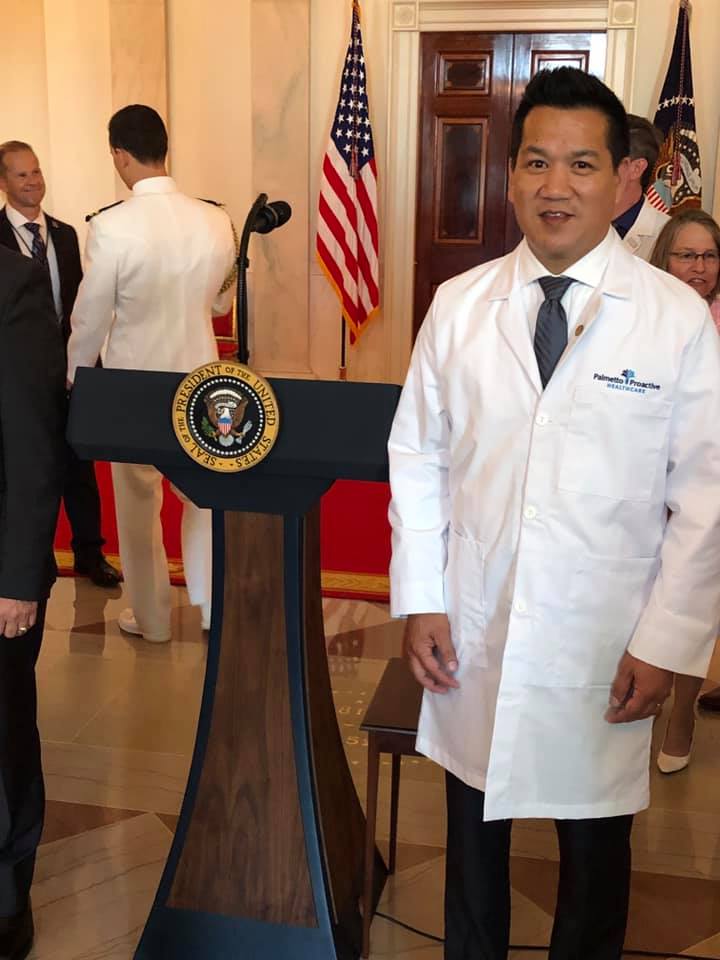Hospitals lose lawsuit against Trump Administration price transparency rules
In a significant win for healthcare freedom, the American Hospital Association has failed in its legal action against the U.S. Department of Health & Human Services’ (HHS) new hospital price transparency rule.
The proposed rule—first revealed in August—would require hospitals to report the rates they have negotiated with insurance companies. These “payer-specific” negotiated charges have long been considered trade secrets in the industry, and both hospitals and insurance companies are doing everything they can to prevent these rates from being published.
Palmetto Promise has been advocating for hospital price transparency as part of our Healthcare Freedom Agenda for South Carolina, arguing that South Carolina patients deserve to know what a medical service will cost before they receive treatment. Revealing actual cost information is critical to unlocking the power of the free market in healthcare and would be a gamechanger for patients.
U.S. District Court Judge Nichols noted in his ruling that, “Traditional economic analysis suggested to the agency that informed customers would put pressure on providers to lower costs and increase the quality of care.”
Physicians agree. Martin Makary, professor of surgery at the Johns Hopkins University School of Medicine and author of the book The Price We Pay: What Broke American Health Care—and How to Fix It, put it this way: “We don’t have an insurance crisis in the United States. We have a pricing crisis.”
Informed customers = lower costs + higher quality. We couldn’t agree more. Here’s a look at some of the research surrounding price transparency and what we are doing in South Carolina to incentivize patients to shop for care.
More transparency, fewer surprises.
The goal of our Healthcare Freedom Agenda is two-fold: increase quality of healthcare and decrease costs for South Carolina consumers. Price transparency stops what we call “surprise billing” by empowering patients with the information they need to make smart healthcare decisions, putting pressure on providers to then deliver better services for patients who are shopping for care.
This was summed up well in the HHS proposal:
Many empirical studies have investigated the impact of price transparency on markets, with most research showing that price transparency leads to lower and more uniform prices, consistent with predictions of standard economic theory. Traditional economic analysis suggests that if consumers have better pricing information for health care services, providers would face pressure to lower prices and provide better quality care. Falling prices may, in turn, expand access to health care for consumers.
The hospital pricing system is too opaque and confusing for even the savviest consumer. Most patients have no idea what a service will cost until they receive their bill after the procedure is performed. In South Carolina, Palmetto Promise identified the disparity in charges for the same medical procedure across the state. The data we used for our report came from SCpricepoint.org, which provides useful comparative data by compiling publicly available hospital “chargemasters.”
But only providing these chargemasters isn’t that helpful, because they reveal only what amounts to a hospital’s “suggested retail price.” That doesn’t tell the patient how much he or she can actually expect to be billed by a particular hospital. That’s where the HHS rule comes in.
The new federalrule may soon revealthe secret price points between the hospital and insurance company, giving the patient an idea of what they should actually pay. We can do our part at the state level by banning Surprise Billing as Oklahoma is considering. We expect legislation to be filed soon.
The patient’s “Right to Shop”
In addition to fighting for price transparency and against Surprise Billing, Palmetto Promise has also advocated for legislation for South Carolina that takes a step further. It is knownas Right to Shop, which would also create transparent prices for non-emergency medical procedures but would combine it with incentives to those who choose to shop for the best price for their care. Some other states have tried this approach with incredible success. A Right to Shop bill has been filed in South Carolina by Senator Wes Climer (R-York County).
In our Right to Shop Fast Facts, we outline the need for this type of legislation in South Carolina, showing the disparities in pricing for incredibly common procedures like an MRI, where prices for the exact same procedure will vary from under $600 to over $2,200 —all in the Charleston area.
With Right to Shop legislation, someone who chooses to shop and find the lowest prices for that procedure can cash-in on their savings.
What’s next?
Following thecourtdecision, the American Hospital Association announced it would appeal, arguing that the amount of work that would go into complying with the regulation could hurt their COVID-19 response.
Although the timeline is unclear, the HHS hospital transparency rule is scheduled to take effect in January 2021, assuming it survives additional legal challenges.
Should that effort be delayed, we will continue doing our part at the state level. Stay tuned!
Photo: U.S. President Donald Trump signs the “Improving Price and Quality Transparency in American Healthcare to Put Patients First” executive order at the White House in Washington, D.C., U.S., on Monday, June 24, 2019. Trump called for hospitals to disclose to patients up front how much they charge for tests, surgeries and other procedures. Photographer: Kevin Dietsch/Pool via Bloomberg.





